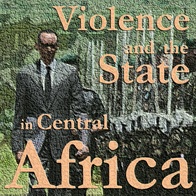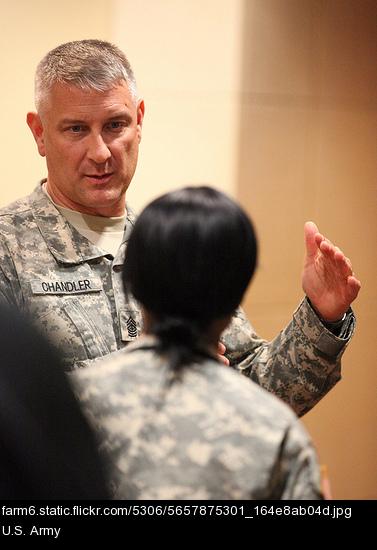
How civil wars end
There is a tendency, even among scholars, to view civil wars as involving two actors—the “government” and “rebels.” This presumption likely arises because historical civil wars that have received the most attention—such as the American and Chinese civil wars—were generally fought between two recognized, organized combatants. Yet, many civil wars (both historical and modern) involve more than two actors.
Take the current civil war in Syria. The Syrian government battles a series of rebel groups that generate a large number of acronyms—ISIS, SLA, SIF, and so on—and that frequently fight amongst themselves. These groups often seek to form coalitions to coordinate their opposition, but the coalitions are unstable and have difficulty controlling their constituent parts. The Syrian conflict also has a large level of external involvement, with the government receiving direct military support from Iran and Hezbollah plus a large number of additional external states and non-state actors seeking to turn the course of the war.
The Syrian opposition’s fragmentation is extreme, but the multiparty nature of the conflict is by no means unique. In fact, many of the wars that have received the most international attention in recent decades—such as in Afghanistan, Columbia, the Democratic Republic of the Congo, Iraq, the Palestinian conflict in Israel, the Darfuri war in Sudan, and Somalia—have involved several rebel groups and significant external involvement.

Paying your soldiers and building the state in post-genocide Rwanda
Ensuring soldiers have legal access to financial resources is crucial for the state to fulfil its primary mission: retain the monopoly of violence. As seen in the Democratic Republic of Congo, difficulties providing soldiers with adequate resources may result in deteriorating discipline, corruption, defection, and human rights abuses.
Rwanda after the genocide faced the difficult task of paying its soldiers. The post-1994 situation made this challenge inescapable. The Rwandan Patriotic Front (RPF) took power in a ruined country. The economy was entirely destroyed, and fleeing officials of the previous regime had emptied state coffers. The resources to pay soldiers were virtually non-existent. In addition, following the RPF victory, many families returned from exile to Rwanda. Consequently, soldiers of the Rwandan Patriotic Army (RPA, the armed wing of the RPF) were not just guerrilla fighters anymore: they became fathers, husbands, or brothers again. This new financial burden on soldiers’ shoulders created a form of indiscipline largely unknown until then in the RPA’s ranks. In addition, the meagre salaries were made in cash, transported by intermediaries from the Ministry of Defence to soldiers, which multiplied the opportunities for embezzlement and the creation of ‘ghost soldiers’. Worse, the opportunities for soldiers to borrow money were extremely limited at the time. Many had no property in Rwanda and consequently no collateral to offer to the few banks still functioning.

Preventing progress in Palestine: Israel must do more to break the deadlock
In Israel and the Palestinian territories, decades of conflict have not offered ripe soil for mutual understanding and peace on reasonable terms. Endless confrontation has eroded hopes for successful negotiations. Nonetheless, the frequent reference to a ‘status quo’ in the Israeli-Palestinian conflict is mistaken – in my opinion, it’s pure political rhetoric and this conflict is anything but one of attrition. Every day, new settler houses are being built in the West Bank and east Jerusalem – on Palestinian land. Everyday bricks are added to the anti-terrorist fence (or apartheid wall, as some call it), thereby outcasting communities of shared history, as well as hindering commerce and splitting communities (and families) apart. The Israeli government, meanwhile, has authorised the building …
US Military Finances Research on Rape in DR Congo
Margot Wallstrom, the United Nation’s special representative on sexual violence in conflict, referred to the Democratic Republic of Congo (DRC) as ‘the rape capital of the world’. If my Google search was any indication (registering a disturbing 4,640,000 hits for the term), the sensationalist phrase stuck among members of the civil society and aid agencies in the Global North. The eastern DRC has alternately been described as ‘the worst place in the world for women’ by The Guardian and ‘hell’ by American feminist playwright Eve Ensler. US Secretary of State Hillary Rodham Clinton called rape in the DRC ‘evil in its bases form’ during a visit to the region in 2009. There is something to be said about the damaging …
How the ICC can help Kenya
The ongoing International Criminal Court trial into the so-called “Ocampo Six” is a reminder of how raw the violence around the 2007 Kenyan election remains. It now seems likely that the verdicts on the six won’t be announced until next year – until which time Uhuru Kenyatta, one of those accused of inciting ethnic violence, remains in the post of Deputy Prime Minister. Over 1100 were killed, and had the coalition agreement not come when it did, the spectre of fully-blown Civil War was a genuine possibility. The international community was in shock, having traditionally viewed Kenya as one of the least violent countries in Africa. Really, they shouldn’t have been. A brief history lesson into how Daniel Arap Moi …

The Responsibility to Protect: the Imperative and the Challenge
The Responsibility to Protect: the Imperative and the Challenge
Play Episode
Pause Episode
Mute/Unmute Episode
Rewind 10 Seconds
1x
Fast Forward 30 seconds
00:00
/
Subscribe
Share
RSS Feed
Share
Link
Embed
Download file | Play in new windowAt the University of Oxford Alumni Weekend, 17 September 2011, Dr Hugo Slim and Professor Jennifer Welsh, from the Oxford Institute for Ethics, Law and Armed Conflict (ELAC), discussed the concept of the ‘Responsibility to Protect’ or R2P in contemporary international relations, and its role in key cases such as Libya and post-election violence in Kenya. Dr Slim discussed the rise of the idea that certain people should be protected in times of war, suggesting that the word ‘civilian’ became a centrepiece of policy during the Bosnian War of the 1990s. He went on to talk about the role and types of ideology that encourage violence against civilians during conflict. Anti-civilian ideology, or the idea that a whole group of …
Bin Laden Location is Humiliation for Pakistan
Whichever way you look at it, the discovery and killing of Osama bin Laden in a comfortable house in Abbottabad within walking distance of Kakul (Pakistan Military Academy) and a short drive from the nation’s capital Islamabad, constitutes an abject humiliation for Pakistan. The options are limited. Either the Pakistani authorities did not know that bin Laden was there, apparently for several years. In which case their incompetence is so colossal that it should cause widespread panic, except that it beggars belief. Or the Pakistani authorities knew of bin Laden’s presence in their midst. In which case the worst cynics have been proved right. There are some tell-tale pointers as to which of these is more likely to be true. …
Justice and Gadhafi’s Fight to the Death
Everyone wants to see wrongdoers punished. But safe exile for bad rulers is often the least worst option. The violence in the Ivory Coast that has left more than 1,300 dead since last November’s presidential election may soon be coming to an end. Incumbent President Laurent Gbagbo, who refused to cede power after losing in the polls to Alassane Ouattara, is reportedly negotiating the terms of his surrender after a week-long offensive by pro-Ouattara forces. What’s puzzling about how this conflict is ending is why Gbagbo didn’t leave sooner, especially after African Union leaders had offered him immunity several times if he agreed to go into exile in South Africa. With 80% of Ivorian territory taken by pro-Ouattara forces and …









